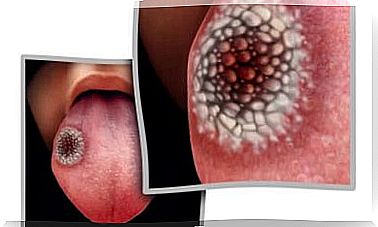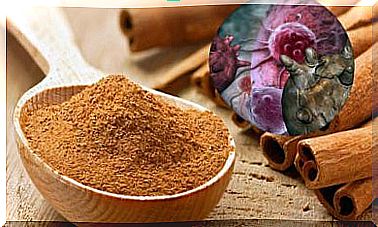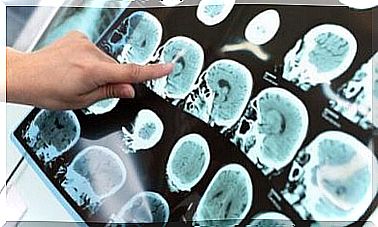What Intestinal Gases Can Reveal About Health

Excess air in the bowel causes bloating. Intestinal gas is caused by bacteria produced by the food we eat. If we are not in the habit of maintaining a good diet, exercising and ingesting the proper vitamins, gas will be constant.
Among the possible causes are: eating in a hurry, swallowing a lot of air when eating food (speaking when eating, for example) or consuming excessive amounts of food.
Are they a disease in themselves or not?
Intestinal gas is not considered a disease, but a warning sign that something is wrong with the digestive system.
On the other hand, you are likely to be eating large amounts of sugars and celluloses. These carbohydrates are not easily digested or absorbed, so they end up in the intestines and are eliminated with a bowel movement.
However, there are other foods such as cauliflower, lentils, raisins or broccoli that have the same effect. In this case, the gases are completely natural.
When should I worry?
Gases are often a passing nuisance. In general, they are not an indication of a serious illness. However, it never hurts to consult a doctor when they occur frequently and are accompanied by other symptoms.
Bowel gases indicate bad eating habits
When you don’t chew properly, eat and drink very quickly and in abundance, and also become agitated and stressed, you may have difficulty digesting and therefore intestinal gas may develop.
Also, the type of food you eat also influences the digestion process. Ultra-processed foods, fried foods, beverages rich in sweeteners and the like are some of those that cause more intestinal gas, heaviness and other discomforts.

Why do I have so much gas?
As you can see, there are several habits that favor the expulsion of air from the intestines.
- Eating too fast.
- Eat in abundance.
- Drinking with a straw.
- Use of dentures.
- Drink plenty of fluids with meals.
- Chew gum or eat candy regularly.
Obviously, other factors, such as mood, also play a role. In this sense, stress and anxiety can make a person eat faster and thus swallow more air, which will cause intestinal gas later.
In fact, according to research published in 2017, emotions such as anxiety and stress influence the development of disorders such as irritable bowel syndrome (IBS). These emotions appear to influence bidirectional communications between the gut and the brain.
Also, when there is constipation, intestinal gas can be present for the simple reason that the stool is stagnant.
On the other hand, as Mayo Clinic experts indicate, having too much gas can be a sign of other disorders, such as autoimmune pancreatitis, diabetes, Crohn’s disease, ulcerative colitis, irritable bowel syndrome, gastroesophageal reflux, among others.
warning signs
- Stomach acidity.
- Swelling in the stomach.
- Uncomfortable when eating.
- Lack of appetite, vomiting, nausea or diarrhea.
- Constipation and weight loss.
- Changes in stool color.
- If gas has started after taking any medication.
- Intense and constant abdominal pain, especially in elderly people.

Is it possible to prevent intestinal gas?
To avoid intestinal gas on a daily basis, it is essential to change your diet. Here are some recommendations:
- Avoid sucking on candies.
- Eat pasta only once a week.
- Whenever possible, eat ripe fruit.
- Decrease the amount of cheese and yogurt.
- Limit your consumption of tomatoes, carrots and celery.
- Change the fried foods for the baked and cooked ones.
- Do not consume products with a high sugar content.
Food not recommended
- Legumes should only be eaten in pureed form. Stay away from lentils, chickpeas and beans.
- There are vegetables that cause a lot of gas. Decrease your intake of: cabbage, cucumber, lettuce and broccoli.
- Flour and cereals are not a good complement.
- Avoid dairy products, especially milk.
- Avoid radishes, potatoes and raw onions.
- Reduce or cut your consumption of soda.
- Alcoholic beverages.
- Chocolate.
Is there any treatment for intestinal gas?

Exercising is highly recommended to improve the functioning of the digestive system. This will not only reduce gas, but also abdominal pain and inflammation. Some of the activities that can help are:
- Walk with your shoulders straight and your hands behind you.
- Cycling, doing yoga or pilates.
- Go up and down stairs.
However, a specialist can prescribe supplements that are high in probiotics, which provide beneficial bacteria to aid the digestive process.
On the other hand, if the patient feels intense pain that recurs several times a day, the ideal is to take a medication against intestinal cramps. It acts directly on the intestine to relax the abdominal muscles.
Don’t self-medicate! Look for a doctor
It is important not to self-medicate. Self-medication will hide the cause of the pain, and this will make it difficult to determine the appropriate treatment. In this sense, when taking a medication, we can come to believe that the gases are not due to any other disease, when, in fact, this may not be the case.









